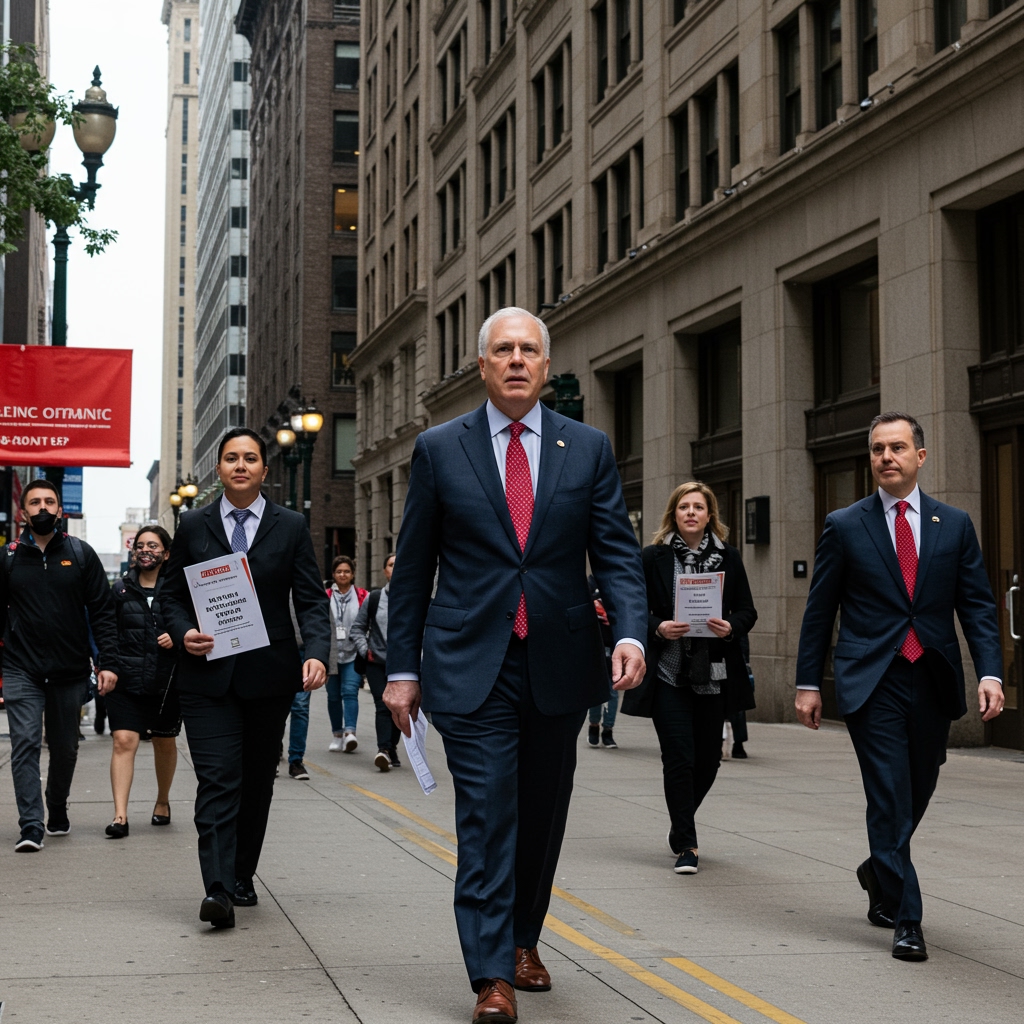SPRINGFIELD, IL – A fierce debate is currently engulfing the statehouse and newspaper op-ed pages alike, centered on the potential seismic shift in Chicago’s property tax landscape proposed by Illinois House Bill 721. The legislation, which seeks a fundamental alteration in the methodology used to assess commercial properties, has ignited a firestorm of controversy, pitting powerful political figures and advocacy groups against one another and drawing sharp lines among editorial boards across the city.
The core of HB 721 lies in its proposed changes to how commercial real estate is valued for tax purposes. While the precise details of the new methodology are complex and subject to interpretation, the overarching goal, according to its proponents, is to create a more equitable system. Opponents, however, warn of dire consequences for the city’s financial stability and economic vitality, predicting significant revenue losses and a chilling effect on investment.
Leading the charge against the bill is Chicago Mayor Isabella Rossi, who has voiced strong opposition to the proposed changes. Mayor Rossi argues that reducing the tax burden on commercial properties through a revised assessment method could lead to a substantial decrease in the city’s overall property tax revenue. This potential shortfall, her administration contends, could necessitate painful cuts to essential city services or, conversely, place an increased burden on residential property owners to compensate for the loss. The Mayor’s stance reflects concerns about maintaining the city’s fiscal health and its ability to fund public safety, education, infrastructure, and other critical functions.
The Chicagoland Property Owners Association (CPOA) has also emerged as a vocal critic of HB 721. Representing a broad base of commercial property owners and developers, the CPOA argues that while tax reform is needed, the method proposed in the bill is flawed and could destabilize the market. They express concerns that a drastic reduction in commercial property assessments, even if intended to correct perceived historical inequities, could lead to unpredictable revenue swings for local governments. Furthermore, the Association warns that the uncertainty created by such a significant legislative change could deter future business investment and development in Chicago, making the region less competitive compared to other major metropolitan areas.
On the other side of the debate, HB 721 finds a staunch advocate in its chief sponsor, State Representative Anya Sharma. Rep. Sharma frames the bill as a crucial step towards achieving tax fairness across the city. She and other supporters argue that the current commercial property assessment system is outdated or inherently inequitable, potentially overtaxing some businesses while undertaxing others. The proposed methodology, they contend, would create a more accurate reflection of market values and ensure that all property classes contribute their fair share.
The bill’s passage, according to proponents, could also provide much-needed relief for residential property owners. By potentially shifting a portion of the overall property tax burden or preventing future increases that might otherwise be needed to compensate for a stagnant or declining commercial tax base under the current system, HB 721 is presented as a measure that benefits the average homeowner or renter.
Supporting Rep. Sharma’s position is the Fair Tax for All Coalition, a group advocating for progressive tax reform and what they view as a more just distribution of the tax burden. The Coalition echoes the argument that the current system disproportionately affects certain taxpayers and that HB 721 is a necessary correction. They emphasize that reforming commercial property taxes is a critical component of broader efforts to ensure that Chicago‘s tax system is both sustainable and equitable for all residents and businesses.
The legislative battle over HB 721 intensified following a pivotal moment on June 6th. On this date, the bill narrowly cleared a key House committee, a significant hurdle that signals its viability within the legislature. The narrow passage underscores the deep divisions and intense lobbying efforts surrounding the proposal. This committee approval has now set the stage for a full floor vote in the House of Representatives, expected to occur sometime next week.
The upcoming vote carries immense implications for the City of Chicago and potentially other jurisdictions within Illinois that rely heavily on property tax revenue. A change of this magnitude could reshape the city’s financial future, impact its ability to fund public services, and influence the economic decisions of businesses considering locating or expanding in the area. The debate is not merely about assessment methods; it is fundamentally about who pays how much for the upkeep and services provided by the city.
As the floor vote approaches, the rhetoric from both sides is expected to escalate further. Editorial boards, reflecting the diverse perspectives within the community, will likely continue to publish opinions championing one side or the other, attempting to sway public opinion and legislative votes. The fate of HB 721 hangs in the balance, with its passage or defeat set to have lasting consequences for the economic landscape and resident pocketbooks across Chicago.















